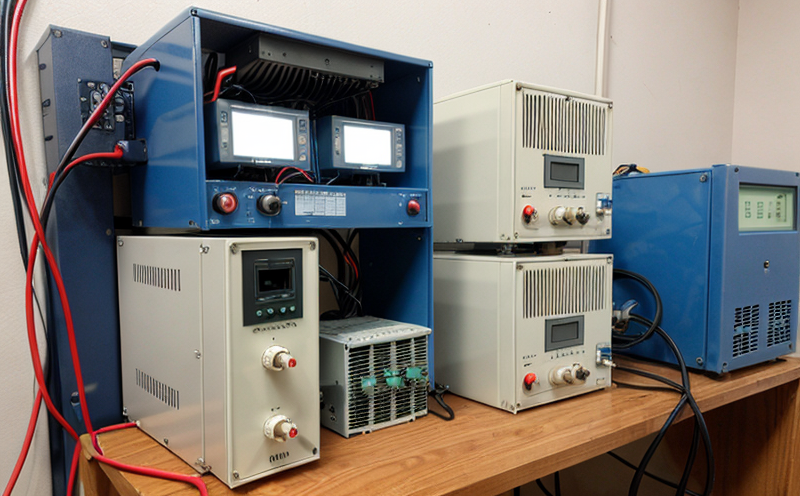EN 50124 Insulation Coordination Testing for Power Supply Systems
The EN 50124 standard is a crucial document in the railway and transportation sector, especially when it comes to ensuring the safety and reliability of electrical power supply systems. This test ensures that insulation coordination within these systems meets stringent international standards, thereby protecting personnel and equipment from electrical hazards.
Insulation coordination involves the design, selection, and application of protective devices such as fuses, circuit breakers, and surge protectors to ensure that they can safely limit fault currents without causing damage. The EN 50124 standard provides a framework for this process, specifying test procedures and acceptance criteria.
The primary goal is to prevent overvoltages from damaging the insulation of equipment or causing fires. By performing regular insulation coordination tests in accordance with EN 50124, railway operators can ensure that their systems comply with regulatory requirements and enhance operational safety.
During this testing process, various parameters are crucial for accurate results. These include voltage levels, current flows, fault currents, and the protection factor (P-Factor) which is a key parameter in determining how well insulation coordination protects against overvoltages. The test setup typically involves applying specific voltages to simulate real-world conditions, measuring the resulting currents, and evaluating the performance of protective devices.
For proper specimen preparation, it is important to follow the guidelines set out by EN 50124. This includes ensuring that all components are clean and free from contaminants before testing begins. The apparatus used for these tests must also comply with the specifications outlined in the standard, including precision measuring instruments capable of accurately recording voltage and current values.
The acceptance criteria for EN 50124 insulation coordination testing are based on the ability of protective devices to limit fault currents while maintaining safe operating conditions. Compliance with these criteria ensures that railway power supply systems meet international safety standards.
Implementing this test can lead to several benefits, including enhanced safety measures and reduced risk of equipment failure. By adhering to EN 50124 guidelines, organizations demonstrate their commitment to quality control and regulatory compliance, which is essential for maintaining a safe and reliable railway network.
International Acceptance and Recognition
The EN 50124 standard is widely recognized and accepted across many countries, particularly those with robust railway infrastructures. Its international acceptance highlights the importance of this test in ensuring consistent safety standards worldwide.
Countries such as Germany, France, and the United Kingdom have implemented this standard due to its effectiveness in preventing electrical accidents and maintaining high levels of reliability within power supply systems. The widespread adoption reflects a shared commitment to safety and quality in railway operations.
Moreover, adherence to EN 50124 demonstrates an organization's dedication to meeting global standards for electrical equipment design and installation. This is particularly relevant for companies involved in international projects where compliance with multiple local regulations can be challenging without such internationally recognized benchmarks.
Use Cases and Application Examples
The EN 50124 standard finds application across various scenarios within the railway industry, from initial design stages to ongoing maintenance practices. Here are some practical examples:
- New Infrastructure Development: Ensuring new rail lines or stations comply with safety regulations before commissioning.
- Maintenance Programs: Regular checks of existing power supply systems to maintain their integrity and prevent potential failures.
- Upgrades and Modernizations: When upgrading legacy systems, ensuring compatibility with modern safety standards.
In each case, the focus is on protecting personnel and assets by minimizing the risk associated with electrical malfunctions. The detailed procedures outlined in EN 50124 provide a comprehensive framework for achieving these objectives.
Why Choose This Test
- Ensures compliance with international standards like EN 50124.
- Reduces the risk of electrical hazards in railway systems.
- Enhances overall safety and reliability of power supply systems.
- Promotes regulatory adherence, critical for quality management and procurement processes.
- Maintains consistent performance across different environments and operating conditions.
- Simplifies the process of selecting appropriate protective devices based on proven test results.
- Provides objective data that can be used to optimize design parameters and improve system efficiency.





